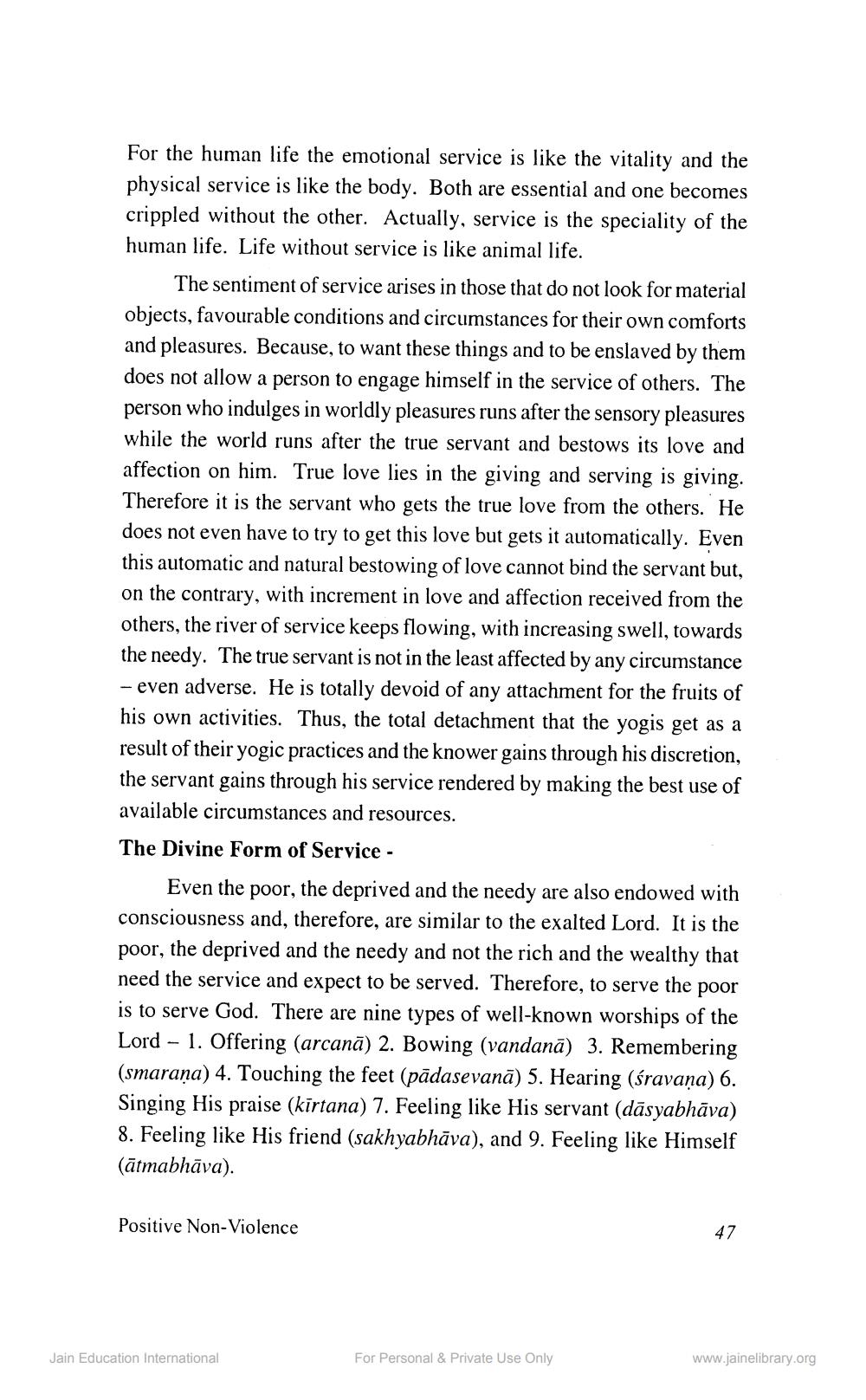________________
For the human life the emotional service is like the vitality and the physical service is like the body. Both are essential and one becomes crippled without the other. Actually, service is the speciality of the human life. Life without service is like animal life.
The sentiment of service arises in those that do not look for material jects, favourable conditions and circumstances for their own comforts and pleasures. Because, to want these things and to be enslaved by them does not allow a person to engage himself in the service of others. The person who indulges in worldly pleasures runs after the sensory pleasures while the world runs after the true servant and bestows its love and affection on him. True love lies in the giving and serving is giving. Therefore it is the servant who gets the true love from the others. He does not even have to try to get this love but gets it automatically. Even this automatic and natural bestowing of love cannot bind the servant but, on the contrary, with increment in love and affection received from the others, the river of service keeps flowing, with increasing swell, towards the needy. The true servant is not in the least affected by any circumstance - even adverse. He is totally devoid of any attachment for the fruits of his own activities. Thus, the total detachment that the yogis get as a result of their yogic practices and the knower gains through his discretion, the servant gains through his service rendered by making the best use of available circumstances and resources. The Divine Form of Service -
Even the poor, the deprived and the needy are also endowed with consciousness and, therefore, are similar to the exalted Lord. It is the poor, the deprived and the needy and not the rich and the wealthy that need the service and expect to be served. Therefore, to serve the poor is to serve God. There are nine types of well-known worships of the Lord – 1. Offering (arcanā) 2. Bowing (vandanā) 3. Remembering (smaraṇa) 4. Touching the feet (pādasevanā) 5. Hearing (śravaņa) 6. Singing His praise (kirtana) 7. Feeling like His servant (dāsyabhāva) 8. Feeling like His friend (sakhyabhāva), and 9. Feeling like Himself (ātmabhāva).
Positive Non-Violence
Jain Education International
For Personal & Private Use Only
www.jainelibrary.org




